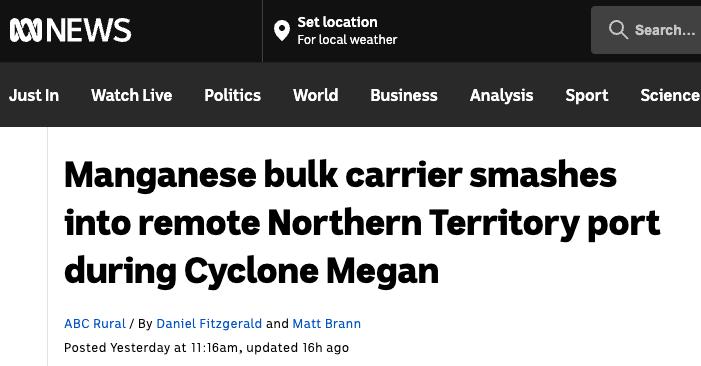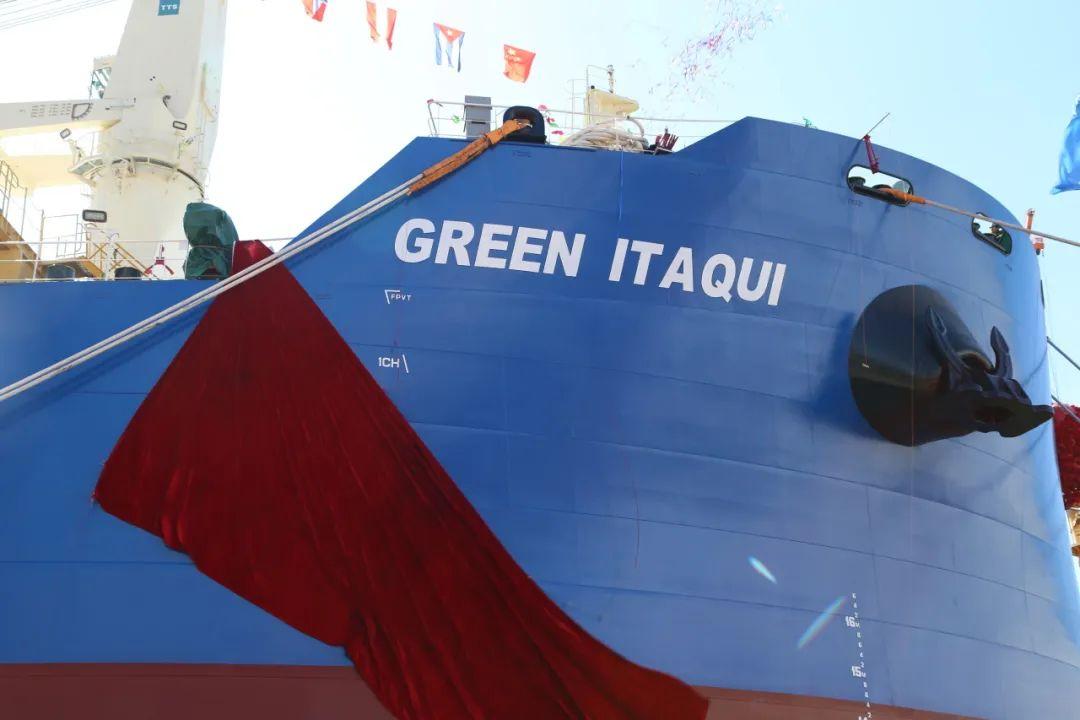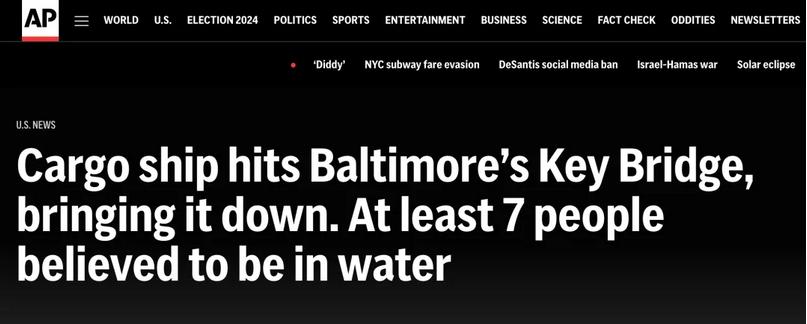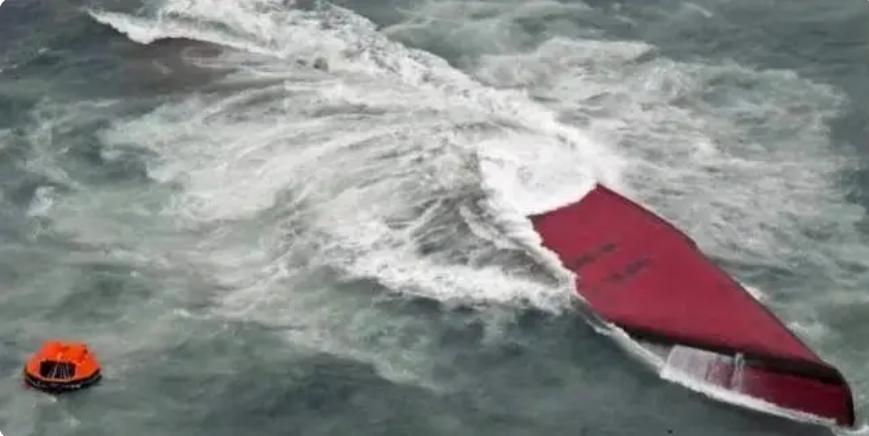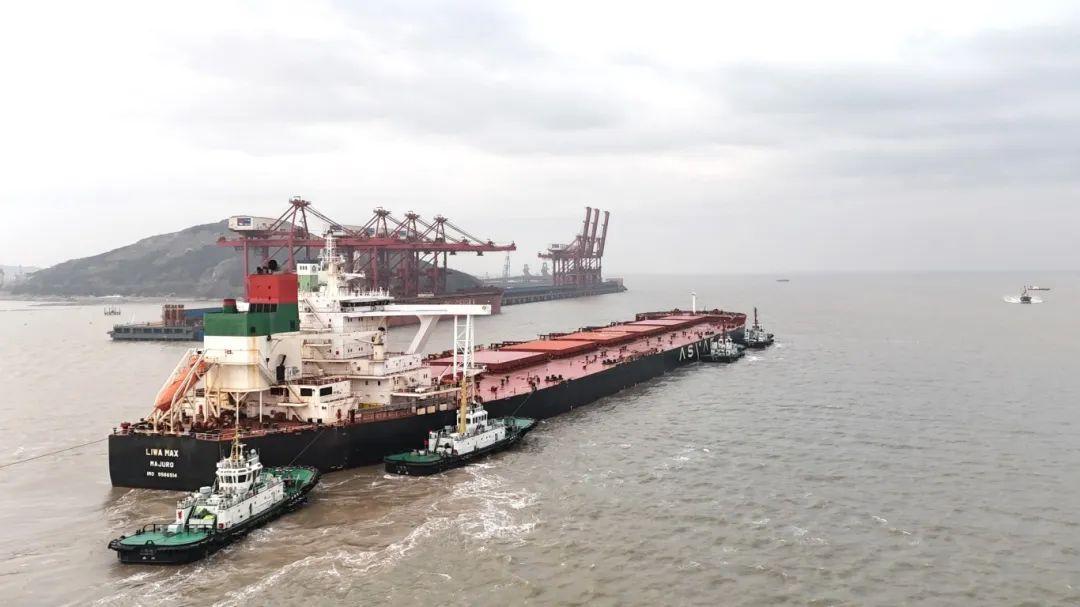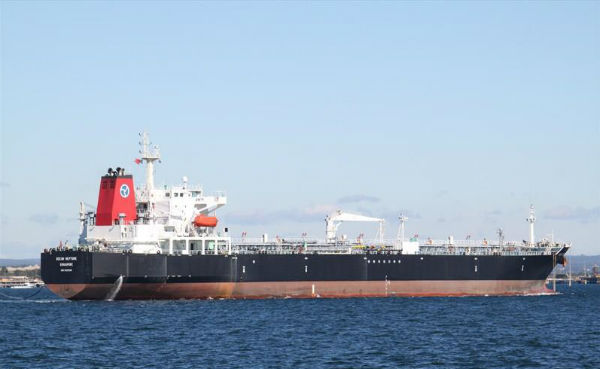
【摘要】船东如果想找租家索赔滞期费,通常情况下,必须向租家提供事实记录(SOF)及准备就绪通知书(NOR)。如果出租人在时效期内未提供的话会造成什么严重后果呢?本文通过对The“Ocean Neptune”案的分析来说说这方面的问题。
【关键词】NOR、滞期费、索赔、时效
之前写过多篇关于时效方面的文章,可以得知如果合同中已经明确规定,需要提供相关的货物文件来结算尾款,尤其是滞期费的时候,如果出租人未能依据合同要求,在规定的时间内提供全部的证明文件,那么出租人的索赔将超过时效。
对于搞航运的人而言,很清楚SOF和NOR是索赔滞期费的最基本文件。有的租约还规定,这类文件必须有收货人或港方签字确认,如果未能取得签字确认,船长还得递交PROTECT,以声明未能取得签字的原因。
本文通过对最新的The “OceanNeptune”案的介绍,来说说未按合同要求提供NOR等文件所造成的严重性问题。
一、基本案情
Ocean Tanker(PTE) Limited(以下简称“出租人”)与Lukoil AsiaPacific Pte Limited(以下简称“承租人”)在2013年11月8日以ExxonMobil Voy2005的租约格式签订了一份程租合同,从一个台湾的安全港口装最少35,000吨的清洁石油产品到一到三个澳大利亚的安全港口卸。出租人派OceanNeptune轮(以下简称“该轮”)去执行该任务。合同约定滞期费率为17,500美元每天按比例,装卸货总时间为84小时,星期六和假期包括在内。
该轮在2013年11月17日0900抵达台湾的麦寮港并递交NOR,在11月19日的2250装完货,油管解掉。按出租人计算,在麦寮港装货时间用了总共57.25小时。
该轮完货后前往第一卸港,澳大利亚的Gladstone,于2013年12月2日的2100抵达并递交NOR。在12月3日的1350靠泊,但在泊位一直呆到12月5日的1410,随后移回到锚地,并一直在锚地呆到2014年1月15日的2340,此时承租人指示该轮开往Botany Bay。在Gladstone延误的原因是由于收货人Caltex认为货物受到污染且不符合规格,似乎收货人无论如何都不愿与该轮合作,出租人计算在Gladstone总共的卸货时间为1,048.5833小时。
该轮于1月18日的1618抵达Botany Bay并递交NOR,在1月19日的2150卸完部分货物,油管解掉。出租人计算在该港的总共卸货时间为27.83333小时。
该轮驶往第三卸港Port Alma,并于1月22日的2320抵达并递交NOR,于1月24日的0835卸完余下货物。出租人计算在此港的卸货时间为22.9333小时。
出租人随后在2014年2月6日,发了电邮给承租人,连同一些货物文件,找承租人索赔滞期费包括利息和其它费用总共772,327.87美元。
合同的相关条款如下:
ExxonMobil VOY2005 form
8. DEMURRAGE/DEVIATION RATE. The rate for demurrage and/or deviation shall be the fixed dollar figure specified in partI(J) or the rate derived by determining the applicable rate from the WORLDSCALE Demurrage Table for tonnage specified in part I (J) and multiplying that rate by the Base Freight Rate. If a Part Cargo Minimum basis is specified in part I(E) and Charterer exercises its option to load additional cargo, any demurrage and/or deviation shall, nevertheless, remain payable at either the aforesaid fixed dollar rate or at the aforesaid rate based on the tonnage specified in Part I(J), whichever is applicable. The applicable rate under this Clause shall hearing after be called "Demurrage Rate" or "Deviation Rate"as is appropriate.
9. LOADING AND DISCHARGING PORT(S)/PLACE(S)
(a) Charterer shall nominate loading or discharging port(s) and/or place(s) or order Vessel to a destination for orders. If Vessel is ordered to a destination for orders, Charterer shall the reafter nominate loading or discharging port(s) and/or place(s). All such nominations or orders shall be made in sufficient time to avoid delay to Vessel.
(b) CHANGE OF DESTINATION. After nominatingloading and/or discharging port(s) or place(s) pursuant to Paragraph (a) of this Clause, Charterer may nominate new port(s) or place(s), whether or not they are within the range of the previously nominated port(s) or place(s) and/or vary the rotation of any nominated port(s) or place(s) and Owner shall issue instructions necessary to make such change(s). It is understood and agreed, however, that the aforesaid option to nominate new loading port(s) or place(s)in different ranges shall lapse on Vessel tendering Notice of Readiness at anominated loading port or place and that aforesaid option to nominate newdischarging port(s) or place(s) in different ranges shall lapse on Vesseltendering Notice of Readiness at a nominated discharging port or place. If achange to, or varying the rotation of, nominated port(s) or place(s) occurs orif Vessel is sent to a destination for orders, any time by which the steamingtime to the port(s) or place(s) to which Vessel is finally ordered exceeds thatwhich would have been taken if Vessel had been ordered to proceed to suchport(s) or place(s) in the first instance shall be compensated at the DeviationRate per running day and pro rata for a part thereof. In addition, Charterershall pay the extra bunkers consumed during such excess time at Owner'sdocumented actual replacement costs at the port where bunkers are next taken.
(c) Any order of Vessel to a destinationfor orders, all nominations and any renominations pursuant to this Clause shallbe consistent with Part I (C) and (D).
13. LAYTIME/DEMURRAGE
(a) COMMENCEMENT/RESUMPTION. Laytime ortime on demurrage, as herein provided, shall commence or resume upon theexpiration of six (6) hours after receipt by Charterer or its representative ofNotice of Readiness or upon Vessel's Arrival in Berth, whichever occurs first.Laytime shall not commence before 0600 0001 hours local time onthe Commencing Date specified in Part I (B) unless Charterer shall otherwiseagree, in which case laytime shall commence upon commencement of the loading
(b) EARLY LOADING. In the event Chartereragrees to load Vessel prior to commencement of laydays, laytime will begin atcommencement of loading and the amount of time from the commencement of loadinguntil 0600 0001 hours local time on the commencing datespecified in Part I (B), shall be added to the laytime specified in Part I (I).
(c) DURATION. The laytime specified in PartI (I) shall be allowed free of expense to Charterer for the purpose of loadingand discharging cargo and all other Charterer's purposes. Laytime or, if Vesselis on demurrage, time on demurrage, shall continue until all cargo hoses havebeen completely disconnected upon the final termination of the loading ordischarging operation. Disconnection of all cargo hoses shall be promptlyeffected. If Vessel is delayed in excess of two (2) hours after such disconnectionof the cargo hoses solely for Charterer's purpose, laytime or, if Vessel is ondemurrage, time on demurrage shall resume upon the expiration of said two(2)-hour period and shall continue from that point until the termination ofsuch delay.
(d) PAYMENT. Charterer shall pay demurrageper running day and pro rata for a part thereof for all time by which theallowed laytime specified in Part I (I) is exceeded by the time taken for theloading and discharging and for all other Charterer's purposes and which, underthis Charter, counts as laytime or as time on demurrage.
14. LAYTIME/DEMURRAGE CONSEQUENCES
(a) SPECIFIED. Any delay to Vessel afterthe expiration of six (6) hours from Charterer's receipt of Notice of Readinessbefore Arrival in Berth or any delay to Vessel after Arrival in Berth, due tounavailability of berth (prior to Arrival in Berth), unavailability of cargo,or solely for Charterer or terminal purposes, shall count as laytime or, ifVessel is on demurrage, as time on demurrage.
(b) HALF-RATE DEMURRAGE. If demurrage isincurred and the Vessel has been delayed in berthing, loading and/ordischarging (hereafter in this Paragraph (b) called "Delay") due to:weather and/or sea conditions; [irrespective of any option given in PartI(C) and (D)]; fire; explosion; strike, picketing, lockout, slowdown, stoppageor restraint of labor; breakdown of machinery or equipment in or about thefacilities of Charterer, supplier, shipper or consignee of the cargo(hereinafter in this Paragraph (b) separately and jointly called "ListedConditions"), be the Delay prior to or after the expiration of laytime,that span of time on demurrage equal to the period or periods of Delay as justdescribed shall be paid at half of the Demurrage Rate. If, during a period ofDelay, Listed Conditions co-existed, along with any of the other conditionsdescribed in Paragraph (a) of this Clause 14, the Listed Conditions shallconclusively be deemed to be the sole cause of the delay, either if they causedthe Delay independently of the other conditions or could have caused the Delayif the other conditions had not so co-existed. Weather and/or sea conditionsshall include, but not be limited to, lightning, restrictedvisibility (the term "restricted visibility" shall mean any conditionin which visibility is restricted by fog, mist, falling snow, ice, heavyrainstorms, sandstorms and any other similar causes), storm, wind, waves and/orswells. The provisions of paragraph 14 (b) shall apply irrespective of anyoption given in Part I (C) and (D). The foregoing provisions as to payment ofhalf the Demurrage Rate in respect to weather and/or sea conditions shall notapply where the Vessel is lightered or discharged at sea.
(c) EXCLUSIONS. Notwithstanding theprovisions of any other Paragraph of this Clause or any other Clause of thisCharter to the contrary, time shall not count as laytime or, if Vessel is ondemurrage, as time on demurrage, if such time is spent or lost:
(i) As a result of labor dispute, strike,go slow, work to rule, lockout, stoppage or restraint of labor involvingMaster, officers or crew of Vessel or tugboats or pilots unless, inthe case where Charterer has load/discharge port options, a labor dispute,strike, go slow, work to rule, lockout, stoppage or restraint of labor oftug boats or pilots, is in force at the port at the time Charterernominated such port;
(ii) On an inward passage, including, butnot limited to, awaiting daylight, tide, tugs or pilot, and movingfrom first anchorage or first other waiting place,even if lightering has taken place at the first anchorage or first otherwaiting place, until Vessel's Arrival in first Berth;
(iii) Due to overflow, breakdown,inefficiency, repairs, or any other conditions whatsoever attributable toVessel, Master, officers, crew and/or Owner, including inability to load ordischarge the cargo within the time allowed and/or failure to meet Vesselwarranties stipulated in this Charter;
(iv) Due to Owner or portauthority prohibiting loading or discharging;
(v) By reason of local law or regulations,action or inaction by local authorities (including, but not limited to, Port,Coast Guard, Naval, Customs, Immigration and/or Health authorities), with theexception, however, of port closure due to weather and/or sea conditions;
(vi) in ballasting or deballasting, liningup and/or draining of pumps/pipelines, cleaning of tanks, pumps, pipelines,bunkering or for any other purposes of the Vessel only, unless same is carriedout concurrent with loading and/or discharging so that no loss of time isinvolved; or
(vii) Due to an escape or dischargeof oil cargo and/or pollutant substances (herein after called"pollutants") or the threat of an escape or dischargeof oil pollutants on or from Vessel. (The phrase "threat of anescape or discharge of oil pollutants" shall for the purposes ofthis paragraph (vii) mean a grave and imminent danger of the escape ordischarge of oil pollutants which, if it occurred, would create aserious danger of pollution damage).
…………
(e) UNSPECIFIED. Any delays for whichlaytime/demurrage consequences are not specifically allocated in this or anyother Clause of this Charter and which are beyond the reasonable control ofOwner or Charterer shall count as laytime or, if Vessel is on demurrage, astime on demurrage. If demurrage is incurred, on account of such delays, itshall be paid at half the Demurrage Rate.
LITASCO Clauses
2. CLAIMS
A…... CHARTERERS SHALL BE DISCHARGED ANDRELEASED FROM LIABILITY IN RESPECT OF ANY CLAIMS OWNERS MAY HAVE UNDER THISCHARTERPARTY (SUCH AS, BUT NOT LIMITED TO, CLAIMS FOR DEADFREIGHT, DEMURRAGE,SHIFTING OR PORT EXPENSES) UNLESS A CLAIM HAS BEEN PRESENTED IN WRITING TOCHARTERERS WITH SUPPORTING DOCUMENTATION WITHIN NINETY (90) DAYS FORDEMURRAGE AND 120 DAYS FOR OTHER CLAIMS FROM COMPLETION OF DISCHARGE OFTHE CARGO UNDER THIS CHARTERPARTY.
B. FOR DEMURRAGE CLAIMS SUPPORTINGDOCUMENTS MUST INCLUDE WHENEVER POSSIBLE -
1. OWNERS' CALCULATION OF THE DEMURRAGEDUE; AND
2. THE CERTIFICATE OF NOTICE OF READINESSTENDERED AT EACH PORT OF LOADING AND DISCHARGE;AND
3. THE STATEMENT OF FACTS FOR EACH LOADINGAND DISCHARGE BERTH WHICH MUST BE SIGNED BY THE MASTER OR THE VESSEL'S AGENTSAND, WHEREVER POSSIBLE, THE TERMINAL; AND
4. THE VESSEL'S PUMPING LOGS FOR EACHDISCHARGE BERTH; AND
5. ALL LETTERS OF PROTEST ISSUED BY THEVESSEL OR THE TERMINAL. THE NOR [sic].[1]
3. STATEMENT OF FACTS CLAUSE
IN ORDER TO BE CONSIDERED AN AUTHORIZEDDOCUMENT, STATEMENTS OF FACTS MUST BE SIGNED BY THE MASTER OF VESSEL, VESSEL'SAGENTS, SUPPLIERS OR RECEIVERS, IF POSSIBLE. IF NOT POSSIBLE, THEN MASTER TOISSUE A LETTER OF PROTEST TO THE DISSENTING PARTY, SUBMITTED TOGETHER WITHOWNERS' DEMURRAGE CLAIM.
4. WAITING FOR ORDERS CLAUSE
IF CHARTERERS REQUIRE VESSEL TO INTERRUPTHER VOYAGE AWAITING AT ANCHORAGE FURTHER ORDERS, SUCH DELAY TOBE FOR CHARTERERS' ACCOUNT AND SHALL COUNT AS LAYTIME OR DEMURRAGE, IF VESSELON DEMURRAGE. DRIFTING CLAUSE SHALL APPLY IF THE SHIP DRIFTS.
Fixture Recap terms
5. BIMCO ISPS CLAUSE
…
(B) (II) EXCEPT AS OTHERWISE PROVIDED INTHIS CHARTER PARTY, LOSS, DAMAGE, EXPENSE, EXCLUDING CONSEQUENTIAL LOSS, CAUSEDBY FAILURE ON THE PART OF THE CHARTERERS TO COMPLY WITH THIS CLAUSE SHALL BEFOR THE CHARTERERS' ACCOUNT AND ANY DELAY CAUSED BY SUCH FAILURE SHALL BECOMPENSATED AT THE DEMURRAGE RATE.
…
7. INTERIM PORT CLAUSE
IF VESSEL CALLS MORE THAN ONE (1) LOADPORTAND/OR ONE (1) DISCHARGE PORT, CHARTERERS TO PAY FOR ADDITIONAL INTERIM PORT ATCOST WITH ADDITIONAL STEAMING TIME, AT DEMURRAGE RATE, TO BE INCURRED FOR SUCHDEVIATION WHICH EXCEEDS DIRECT PASSAGE, BASIS BP DISTANCE TABLE, FROM FIRSTLOAD PORT TO FINAL DISCHARGE PORT. …
10. IF VESSEL IS ORDERED BY RELEVANTAUTHORITY(IES) OR CHARTERERS OR AGENTS TO DRIFT OFF OUTSIDE PORT(S), AT ALOCATION IN OWNERS'/MASTER'S OPTION, THEN THE FOLLOWING SHALL APPLY:
(I) TIME FROM VESSEL'S ARRIVAL AT DRIFTINGLOCATION TO THE TIME VESSEL DEPARTS, ON RECEIPT OF CHARTERERS' INSTRUCTIONS,FROM SUCH LOCATION SHALL BE COUNTED AS USED LAYTIME OR DEMURRAGE, IF ONDEMURRAGE.
(II) BUNKERS CONSUMED WHILST DRIFTING SHALLBE FOR CHARTERERS' ACCOUNT AT LAST PURCHASED PRICE, OWNERS SHALL PROVIDE FULLDOCUMENTATION TO SUPPORT ANY CLAIM UNDER THIS CLAUSE."
二、争议焦点
承租人以出租人未按照LITASCO条款第2B条所要求的在卸完货后90天内提供所有证明文件,出租人所提供的文件中没有包括每个港口的SOF,因此出租人的滞期费索赔已超时效为由,拒绝承担赔偿责任。同时,承租人还提出反诉,指控货物受到污染及短货,总共索赔2,015,903.09美元。仲裁庭根据承租人的申诉,将时效问题确定为初步问题。
法庭认为出租人未能提供LITASCO第2B条所要求的所有证明文件,因为出租人在2017年2月6日所提交的文件中并没有包括每个港口的附带有码头签字的事实记录,包括麦寮港,Galdstone港,Botany Bay港及Port Alma港,或者如果不可能取得这样的联名签署,则提供船长的抗议书。法庭认为,基于这个原因,滞期费索赔超过时效,除了一两个点。法庭将在Gladstone的延误视为超出了时间限制的范围,因为虽然这最初被归类为出租的滞期费索赔,但后来出租人他们将其重新标记为等待指示而落入LITASCO条款4的解释。 法庭认为,LITASCO第2B条款的文件要求不适用于如此重新标记性质的索赔。该结论的推理载于裁决的第20段,内容如下:
“在我们看来,第2.B条要求的严格适用必须削减两种方式,并且它们不适用于等待命令的时间损失索赔,这不仅适用于补充条款的适当解释,但从实际的角度来看,对于滞期费的文件要求不适用于等待命令的时间损失的索赔,当船舶需要等待命令时,经常会按照命令在港界外等待以避免产生港口费用。因此,船舶与货物交接人员的岸上代表可能完全没有联系,船舶等待命令可能与港口任何人没有任何沟通。
It seems to us thatthe strict application of the requirements of clause 2.B has to cut both waysand they are not applicable to a claim for time lost waiting for orders. Notonly does that follow from the proper construction of the rider clauses, butfrom a practical point of view it would make sense for the documentaryrequirements for demurrage not to be applicable to claims for time lost waitingfor orders. When a vessel has to wait for orders, she will often do so off portlimits in order to avoid port charges. As a result, the contact that a vesselwill have with the shore representatives of those handing the cargo may well betotally absent. The vessel's wait for orders may generate no communications atall with anyone at the port.
三、法官判决
承租人主张,=根据LITASCO第4条提出的索赔是一项滞期费用索赔;并且LITASCO条款2B适用于滞期费用。没有商业原因不讲将LITASCO条款的语言赋予其明确和明确的含义。相反,商业上的考虑强化了这种简单的含义。
出租人主张第2B条是一项限制条款,否则该条款可能是出租人以其选择的方式和时间提出和证明其索赔的权利,但须受任何法定时效期限限制,因此应予以限制性解释。在装货港和卸货港的运营延迟索赔与滞留索赔之间有区别,以及等待命令的时间索赔要求不同。滞期费是违反与船舶使用有关的租约的违约赔偿金,而LITASCO第4条赋予租约人不违反契约自由。LITASCO第4条索赔为计算目的而被视为“滞期费”这一事实并未使其成为所有目的的滞期费索赔,尤其是对于LITASCO第2B条等条款而言并没有这样做。没有理由认为,LITASCO第2B条款中列出的任何类别的文件可能是相关的或必要的,以评估等待命令导致时间损失的索赔;从商业角度看,法庭的推理加强了有关条款语言的解释。
高等法院的Popplewell法官认为,所先需要再次明确的是,法院的任务是确定当事人双方选择用来表达其协议的措辞的客观含义。法院必须考虑所使用的措辞,并确定合理的人,即具有在合同签订时已合理地向当事方提供的所有背景知识的人理解的内容。法院必须将整个合同视为一个整体,并根据合同起草的性质,形式和质量,或多或少地重视更广泛的内容,以达到其所用措辞的客观含义。如果有两种可能的解释,法院有权选择符合商业合理性的解释。为了在语言表达和相互竞争解释的含义之间取得平衡,法院必须考虑起草该条款的质量;同样,法院也不能忽视这样一种可能性,即一项条款可能是谈判妥协,或者谈判者无法就更准确的条款达成一致。只要法院平衡各自给出的指示,更详细的分析是否与事实背景以及竞争对手的解释的影响或合同中相关措辞的深入研究无关。
There is an abundance of recent highauthority on the principles applicable to the construction of commercialdocuments, including InvestorsCompensation Scheme Ltd v West Bromwich Building Society [1998] 1 WLR 896; Chartbrook Ltd v Persimmon Homes Ltd [2009] 1 AC 1101; Re Sigma Finance Corp [2010] 1 All ER 571; Rainy Sky SA v Kookmin Bank [2011] 1 WLR 2900; Arnold v Britton [2015] AC 1619; and Wood v Capita Insurance Services Ltd [2017] AC 1173. The court's task is to ascertain theobjective meaning of the language which the parties have chosen in which toexpress their agreement. The court must consider the language used and ascertainwhat a reasonable person, that is a person who has all the background knowledgewhich would reasonably have been available to the parties in the situation inwhich they were at the time of the contract, would have understood the partiesto have meant. The court must consider the contract as a whole and, dependingon the nature, formality and quality of drafting of the contract, give more orless weight to elements of the wider context in reaching its view as to theobjective meaning of the language used. If there are two possibleconstructions, the court is entitled to prefer the construction which isconsistent with business common sense and to reject the other. Interpretationis a unitary exercise; in striking a balance between the indications given bythe language and the implications of the competing constructions, the courtmust consider the quality of drafting of the clause and it must also be aliveto the possibility that one side may have agreed to something which withhindsight did not serve his interest; similarly, the court must not lose sightof the possibility that a provision may be a negotiated compromise or that thenegotiators were not able to agree more precise terms. This unitary exerciseinvolves an iterative process by which each suggested interpretation is checkedagainst the provisions of the contract and its commercial consequences areinvestigated. It does not matter whether the more detailed analysis commenceswith the factual background and the implications of rival constructions or aclose examination of the relevant language in the contract, so long as thecourt balances the indications given by each.
Popplewell法官认为LITASCO条款2B适用于“滞期索赔”。因此,问题是根据LITASCO第4条提出的索赔是否是“滞期索赔”。ExxonMobil VOY2005格式和LITASCO条款都有详细而精心的草拟条款,而租船合同则是参考它们的框架。因此,从租船合同中使用的语言作为一个整体开始分析比较方便。
Popplewell法官认为,租船合同的语言清楚地表明,LITASCO第4条索赔是一项滞期费用索赔。ExxonMobil VOY2005格式第13(d)条中规定了滞期费索赔的含义。使用“租船人应支付滞期费用”这一词语来形成支付滞期费的义务。它规定,滞留时间应按照允许装卸时间超过装卸时间的所有时间来支付以及所有其他租船人的目的,并且根据本租船合同,这些目的是计入装卸时间或滞期费用。LITASCO第4条款的语言规定,由于在锚地等待应计算为使用的装卸时间或滞期费。按照第13(d)条的规定,LITASCO第4条款的等待时间是根据租船合同规定的租船人的目的所用的时间计为装卸时间或滞期费。因此,它完全符合第13(d)条的规定,产生了滞期费索赔。这不仅仅是以滞期费率的滞期费用来量化。它是根据第13(d)条提出的滞期费用索偿。斜体字清楚地表明,在“承租人超过允许卸货时间的装货和卸货时间”的索赔意义上的普通滞期索赔和延迟等待命令的索赔之间没有区别在这种情况下,这种延误将被视为装卸时间或滞期费用。只有一种类型的索赔:对于承租人超过约定装卸时间和承租人任何其他目的(根据租船合同规定为装卸时间或滞期费用)的时间提出滞期费索赔,包括在LITASCO第4条款下等待命令的时间。
In my judgment thelanguage of the charter provides in clear terms that a LITASCO Clause 4 claimis a demurrage claim. Identification of what is meant by a claim for demurrageis to be found in clause 13(d) of the ExxonMobil VOY2005 form. It is there thatthe obligation to pay demurrage is framed by the use of the words"Charterer shall pay demurrage…." It provides that demurrage is to bepaid for all time by which the allowed laytime "is exceeded by time takenfor loading and discharging andfor all other Charterer's purposes and which, under this Charter, counts aslaytime or as time on demurrage." The language of LITASCO Clause 4provides that the delay caused by waiting at anchorage shall"count as" used laytime or demurrage. The waiting time under LITASCOClause 4 is, in the words of clause 13(d), time taken for Charterers' purposeswhich under the Charter counts as laytime or demurrage. It therefore fallssquarely within clause 13(d), giving rise to a claim for demurrage. It is notjust to be quantified in the same way as a demurrage claim at the demurragerate. It is ademurrage claim under clause 13(d). The italicised words make it clear thatthere is no distinction between an "ordinary" demurrage claim, in thesense of a claim where the Charterers have exceeded the allowed laytime by thetime taken for loading and discharging, and a claim for delay waiting fororders where such delay is to count as laytime or time on demurrage. There isonly one type of claim: a claim for demurrage to account for the time by whichCharterers have exceeded the agreed laytime for loading, discharging and forany other of Charterers' purposes which count as laytime or time on demurrageunder the Charterparty – including time spent waiting for orders under LITASCOClause 4.
Popplewell法官认为规定这段时间是作为装卸时间计算或滞期费,并被视为滞期费索赔的一部分,是租约条款中的一种常见的起草技术。这个公式通常用于描述那些不属于装卸时间的时期,例如因为船舶并未成为抵达的船舶,而是为了滞留索赔的目的而被视为这样:例如参见Diplock勋爵在Dias Compania Naviera S.A. v Louis Dreyfus Corporation [1978] 1 WLR 261案中所说。
Popplewell法官认为根据LITASCO第4条规定的等待时间要求并非简单或必然是所有这些时间的要求,这一事实加强了这一解释。根据该条款提出的索赔不仅要以滞期费率进行量化,还要通过在其他航程执行过程中使用或未使用的外行时间进行限定。如果根据该条款提出索赔,则应计为装卸时间:如果没有使用装卸时间,则会减少根据该条款提出索赔的等待时间。因此,任何第4条的索赔都必须考虑在航行的其他阶段已计算为装卸时间的时间(如果有的话)。在某些情况下可能没有,例如当空载航程开始之后,命令是在锚地等泊,但在抵达装货港之前(尽管即使此时在别处使用的装卸时间也是相关的,除非等待时间本身超过了允许的全部84小时;但是当等待命令在抵达装载港后和/或在一个卸货港装载和/或部分卸货之后发生时,它也一定意图应用。在这种情况下,第4条索赔只能作为滞期费索赔的一部分,因为不可能将第13(d)条作为单独的滞期费索赔:第13(d)条对滞期费的索赔按其条款将等待时间视为装卸时间,因为第4条要求它,并且不能忽视它,以便仅根据装货和卸货时使用的装卸时间提前推迟滞期索赔。第4条索赔必然是第13(d)条滞期费索赔的组成部分。
This construction is reinforced by the factthat a claim for waiting time under LITASCO Clause 4 is not simply ornecessarily a claim for all such time. A claim under the clause is not only tobe quantified at the demurrage rate, but is also qualified by the laytimeotherwise used or not used in the course of performance of other parts of thevoyage. If a claim arises under the clause it is to count as laytime: to theextent that laytime has not otherwise been used, it will reduce the waitingtime for which a claim can be made under the clause. It follows that any Clause4 claim will have to take account of the time which has counted as used laytime,if any, at other stages of the voyage. In some circumstances there may be none,as for example when the order is to wait at an anchorage after thecommencement of the approach voyage but prior to arrival at the loadport(although even then laytime used elsewhere will be relevant unless the waitingtime itself exceeds the full 84 hours allowed); but it must have been intendedto apply also when the waiting for orders takes place after arrival at theloadport and/or after loading and/or after part discharge at one dischargingport. In such circumstances a Clause 4 claim could only be part of a claim fordemurrage because it would not be possible to apply clause 13(d) as a separateclaim for demurrage: a clause 13(d) claim for demurrage would by its terms haveto treat the waiting time as laytime, because Clause 4 requires it, and couldnot ignore it so as to permit a demurrage claim to be advanced based only onthe laytime used in loading and discharging. The Clause 4 claim is necessarilypart and parcel of a clause 13(d) demurrage claim.
Popplewell法官认为LITASCO条款4的措辞与租船合同的条款5和条款7的措辞之间的对比也支持这种解释。如果各方想要区分滞期索赔和其他类型的拖延索赔,他们会使用明确的语言来这样做。第5条规定,承租人违反ISPS条款义务造成的任何延误应按滞期费补偿。第7条规定,如果承租人偏离超出商定数量的临时装货港或卸货港,他们将按照滞期费支付额外的航行时间。这不涉及任何分析使用的装卸时间,而是指滞期费率,而不是滞期费用,作为量化相关时间价值的标准。当合同各方在合同的不同部分使用不同语言时,他们打算取得不同的效果时,推定其实力会根据情况而有所不同。在这种租船合同背景下,通过对标准格式条款的具体补充和修订,可以推断当事方已经注意到所使用的语言,并且推定具有一定的权重。
Thisconstruction is also supported by the contrast between the wording of LITASCOClause 4 and that of clauses 5 and 7 of the Fixture Recap. Where the partieswanted to draw a distinction between demurrage claims and other types of delayclaim they used clear language to do so. Clause 5 provides that any delaycaused by breach of the ISPS clause obligations by the Charterers "shallbe compensated at the demurrage rate". Clause 7 provides that where theCharterers deviate to an interim loading or discharging port beyond the numberagreed, they are to "pay for…additional steaming time, at demurragerate." This does not involve any analysis of used laytime and refers tothe demurrage rate, not demurrage, as the yardstick for quantification of thevalue of the relevant time. The presumption that where parties have useddifferent language in different parts of their contract they intend to achievea different effect, is one whose strength will vary according to the context.In this charterparty context, with specific additions and amendments tostandard form clauses, it is to be inferred that the parties have taken carewith the language used, and the presumption carries some weight.
承租人的代表律师Moore女士辩称,这种解释得到了进一步的支持,因为ExxonMobil VOY2005第14条中规定的船上和滞期费用的详细例外和资格也必须适用于等待承租人命令的部分时间作为装卸时间或滞期费,依据“程租合同”第15.60段的规定和Hobhouse 法官在Huyton S.A. v InterOperators S.A. [1994]1 Lloyd's Rep 298案中关于一个不同条款的判决。例如,她争辩说,第14(b)条中的一半滞期费规定适用于这一时期。Popplewell法官认为这可能是这样,但他不需要判定这一点,并且在不直接涉及特定事实的情况下不这样做。
Popplewell法官转而考虑是否存在任何商业上的考虑或后果,指出LITASCO第4条索赔不是为了引用LITASCO第2B条而成为“滞期费用索赔”。
第2B条确定了必须伴随滞期费索赔的文件,第2A条必须在最终卸货后的90天内提供。Popplewell法官认为这些规定在航次租船中很常见,并且通常反映销售合同中的相应条款,要求相同的条件适用于承租人对托运人或收货人的索赔:请参阅Schofield第7版的“装卸时间与滞期费”第6.284段。它们的目的是使各方尽可能迅速地进行最终账务处理,并且如果有任何事实上的查询必须确保各方能够这样做,而回忆是相当新鲜的。正如Bingham法官在BabanaftInternational Co SA v Avant Petroleum(“The OLTENIA”) [1982]1 Lloyd's Rep 448,453案中所说:这一条款的商业意图似乎很明显是确保出租人在短期内完成索赔,以便可以调查索赔,如果可能的话,在事实仍然是新鲜的情况下解决索赔。只有承租人拥有他们所需的事实材料才能实现这一目的,以便确定这些索赔是否有充分理由。
The commercialintention underlying this clause seems to me plainly to have been to ensurethat claims were made by the owners within a short period of final discharge sothat the claims could be investigated and if possible resolved while the factswere still fresh …. This object could only be achieved if the charterers wereput in possession of the factual material which they required in order tosatisfy themselves whether the claims were well-founded or not.
仲裁员本人在以下裁决中描述了LITASCO第2条和第3条第9款的目的:第2条和第3条第2款的目的是向承租人提供符合这些条款的文件,以便他们能够准确计算滞期费用,不仅得出结论与对当事方约定的合同条款给予适当的效力一致,但这与运营事务和滞期费索赔的总体趋势一致,即由承租人组织的不同部门处理。事实上,对滞期费索赔的评估往往外包给第三方。
The aim of riderclauses 2 and 3 is that the Charterers should be presented with documentationcomplying with those clauses so they can accurately calculate their liabilityfor demurrage. Not only is that conclusion consistent with giving proper effectto the contractual clauses agreed by the parties, but it is also consistentwith the general trend for operational matters and demurrage claims to behandled by different departments in a charterer's organisation. Indeed theevaluation of demurrage claims is often outsourced to a third party.
由于这个原因,法院和仲裁法庭经常坚持严格遵守这些条款,尽管表达严格遵守的规定已经被废弃,并且说法院可以更加准确地说明法院是否会明确和确定该条款是否为了达成此目的。(参National Shipping Company of Saudi Arabia v BP Oil Supply Co ("TheABQAIQ") [2012]1 Lloyd's Rep 18 at [60]-[61]案)。
Popplewell法官认为这个基本原理同样适用于LITASCO第4条关于滞期费索赔的任何其他方面的等待时间索赔。法庭集中审理了第2B条所列举的这类文件可能不存在于船舶等候地点的事实,特别是如果船舶在港界外等待命令,则不会与任何港口的人有任何通讯交流。关于法庭,Popplewell法官认为在没有列举类型的文件的情况下审查该条款并没有什么用,因为该条款以“尽可能”一词为限,并且由于它将不可能提供不存在的文件,条款的要求将不会被执行。法庭并未表示永远不会有这些文件出现的情况,显然可能有(如本争议的具体事实所示)。更重要的是,当这些文件确实存在与第4条的权利要求有关时,它们往往是相关的和必要的,以实现第2条旨在服务的功能。每当在到达相关港口后发生在锚地等待的事,将会有NOR,并可能是由码头签署的事实陈述或船长针对该港口提出抗议,如果没有签署的话。这可能有助于迅速解决或进一步调查引起第4条索赔的事件。条款2B在这些文件确实存在时履行其主要职能,并且在没有文件时不履行。
Thisrationale applies as much to a claim for waiting time under LITASCO Clause 4 asto any other aspect of a demurrage claim. The Tribunal focussed on the factthat documents of the kind enumerated in Clause 2B might not exist in relationto the waiting place of the Vessel, and in particular on the fact that if theVessel was waiting for orders off port limits there would be no communicationswith anyone at the port. With respect to the Tribunal, I do not find it helpfulto look to the application of the clause in circumstances where there would beno documents of the type enumerated, because the clause is qualified by thewords "whenever possible", and since it will not be possible to senddocuments which never existed the requirements of the clause will not beengaged. The Tribunal did not say that there would never be circumstances inwhich such documents came into existence, and there clearly could be (as theparticular facts of this dispute illustrate). What is of more significance isthat when such documents do exist in relation to a Clause 4 claim, they willoften be relevant and necessary to fulfil the function which Clause 2 isdesigned to serve. Whenever the waiting at anchorage takes place afterarrival at the relevant port, there will be an NOR and likely be a statement offacts which can be required to be signed by the terminal or non-signatureprotested by the Master in relation to that port. That will likely assist inthe swift resolution or further investigation of events which give rise to theClause 4 claim. Clause 2B fulfils its primary function when such documents doexist, and is not engaged when they do not.
Popplewell法官认为对他而言,重要的是,它不仅是船舶等待与这个问题有关的地方。如果在第一个装货港提交NOR之后的任何一个航程阶段发生延误,则需要计算与等待承租人命令相比已经使用的装卸货时间。例如,在本案中,第4条关于在Gladstone等待的时间的索赔必然需要计算装货港使用的装卸时间,即麦寮港。第2B条的目的是要求提供这些文件,并且如果他们被认为是仅仅基于装载和卸载操作的滞期费索赔所必需的,那么当他们确定第4条索赔的组成部分时,没有理由认为它们不那么必要。然而,如果出租人的意见是正确的,则无需为装载港提供条款2B规定的任何文件。出租人的代表律师Richard Lord QC试图通过争辩2A条款中仍然有义务来避免这种后果,在该部分的措辞下提供“佐证文件”;而且在任何特定情况下,仲裁庭可以确定足够的证明文件,但这不会是第2B条规定的规定最低限度。如果这是正确的,那么会产生令人惊讶的结果,即为了计算两个索赔的目的,在装货港计算使用的装卸时间时,各方打算要求不同的或可能不同的文件,尽管在每种情况下都要提供为了一个相同的目的,即为了便利对所使用的外行时间进行快速计算或调查。仲裁员认定,在这种情况下,在装货港提供的文件不符合第2B条的要求,不足以履行与装卸作业有关的滞期费用计算。这为在Gladstone之后的装货港和两个卸货港的滞期费索赔提供了完整的时效限制,尽管后两个港口的文件存在额外的缺陷。有人问,为什么出租人有权为麦寮港提供较为严格的文件,仅仅是因为索赔是关于Gladstone等待?尽管装载时间是两者的基本要素?商业合理性表明,各方在每种情况下都会使用相同的方案。
Moreover, and to my mind importantly, it is not only theplace where the Vessel waits which is relevant to this issue. If the delayoccurs at any stage of the voyage after NOR has been tendered at the firstloading port, it will be necessary to calculate what laytime has been usedquite apart from that caused by waiting for Charterers' orders. In the presentcase, for example, the Clause 4 claim for time spent waiting at Gladstone necessarilyrequires a calculation of the laytime used at the loadport, Mailiao. The verypurpose of Clause 2B is to require those documents to be provided, and if theyare regarded as necessary for a demurrage claim based solely on loading anddischarging operations, there is no reason why they should be regarded as anyless necessary when they determine a constituent element of a Clause 4 claim.Yet if the Owners' submissions be correct, there is no need to provide any ofthe Clause 2B documents for the loadport. Mr Lord QC sought to avoid thisconsequence by arguing that there would still be an obligation under Clause 2A to provide "supportingdocumentation" under the wording in that part of the clause; and that whatamounted to sufficient supporting documentation would be for a tribunal todetermine in any given case, but it would not be the prescriptive minimumrequired by Clause 2B. If this were right, it would produce the surprisingresult that the parties intended different or potentially differentdocumentation to be required in order to calculate used laytime at the loadportfor the purposes of the two claims, notwithstanding that in each case it was tobe provided for an identical purpose, namely to facilitate a swift accountingfor, or investigation of, the laytime used. The arbitrators found that thedocumentation supplied at the loadport in this case failed to fulfil the Clause2B requirements and was not sufficient to fulfil a demurrage claim relating toloading and discharging operations. That provided a complete time bar defenceto the demurrage claim in respect of time at the loadport and the two dischargeports after Gladstone,irrespective of the additional deficiencies in the documentation for the lattertwo ports. Why, one asks, should the Owners be entitled to supply less rigorousdocumentation for Mailiao, merely because the claim is one for waiting atGladstone, notwithstanding that loadport laytime is an essential element inboth? Commercial business sense suggests that the parties would have intendedthe same regimen in each case.
Bingham 法官在The “Oltenia”案中,在他的判决书中所说的话有一个回应,紧接着上面引述的那样:“作为常识,出租人不会对实时提出的索赔做出实际更正,也不能对先前提出的索赔提出不同的法律标签,但出租人在我看来被拒绝执行一项索赔,索赔的实质和其支持文件(总是以最小限度例外为准)尚未及时提交。”正如已遵守文件要求的出租人不会阻止在这项索赔上提出不同的法律标签,相反地,他们确实应该被拒绝追偿未遵守要求的索赔,并且不应仅仅通过重新标签索赔来避免这种后果。
The owners would not,as a matter of common sense, be debarred from making factual corrections to theclaim presented in time…..nor from putting a different legal label on a claimpreviously presented, but the owners are in my view shut out from enforcing aclaim, the substance of which and the supporting documents of which (subjectalways to de minimis exceptions) have not been presented in time.
出租人的代表律师Richard LordQC认为,如果承租人的解释是正确的,那么出租人至少在某些情况下会被要求提交不相关的文件。他举了一个例子,告诉船舶在锚地等待,在抵达第一个装货港之前的进一步指示,所花的时间超过了允许的全部的84天。在这种情况下,他认为,在装货港和卸货港随后的运营文件与LITASCO第4条第4款的等待时间索赔无关。Poppelwell法官认为这里有两个答案。首先,在给出的具体例子中,在货物装卸时间在抵达装货港之前已经被完全使用,出租人可能会推迟装货和卸货之后的滞期费用,并且可以预计它们无论如何收集和提交文件用于这些目的。其次,即使在某些情况下,第2B条文件是无关紧要的,这不是没有落实合同明确措辞的充分理由。这个要求并不繁琐:它适用于非常有限的一类文件,如果它们存在的话,它应该容易地交付并且能够提交而没有不适当的困难或费用。如果一项旨在在大多数情况下有正当理由运作的规定可能偶尔需要不相关的文件,那么没有理由认为当事方不打算使其具有明确规定的效力。 Neuberger勋爵在英国的观点如果一项旨在在大多数情况下有正当理由运作的规定可能偶尔需要不相关的文件,那么没有理由认为当事方不打算使其具有明确规定的效力。 Neuberger勋爵在英国的观点如果一项旨在在大多数情况下有正当理由运作的规定可能偶尔需要不相关的文件,那么没有理由认为当事方不打算使其具有明确规定的效力。 Neuberger勋爵在Arnold v Britton案中第[16] - [23]段关于“商业合理性”的影响的限制的观点在这方面是恰当的。
Mr Lordargued that if the Charterers' construction were correct the Owners would at leastin some circumstances be required to submit irrelevant documents. He gave as anexample where the Vessel was ordered to wait at anchorage for furtherorders prior to arrival at the first loadport and the time so spent exceededthe full 84 days allowed; in those circumstances, he argued, the documentationfrom the subsequent operations at the loading and discharging ports would beirrelevant to a waiting time claim under LITASCO Clause 4. To my mind there aretwo answers to this point. First, in the particular example given, in whichlaytime had already been fully used prior to arrival at the loadport, theOwners would be likely to be advancing a demurrage claim for the time taken inloading and discharging thereafter, and they could be expected to collect andsubmit the documentation for those purposes in any event. Secondly, and even ifthere might be some circumstances in which the Clause 2B documents wereirrelevant, that is not a sufficient reason for failing to give effect to theclear wording of the contract. The requirement is not onerous: it applies to avery limited class of documents which, if they exist, ought to be readily tohand and capable of submission without undue difficulty or expense. If aprovision which is designed to operate for good reason in most circumstancesmight occasionally require irrelevant documents, that is no reason to supposethat the parties did not intend it to have the effect for which it clearlyprovides. The points made by Lord Neuberger in Arnold v Britton at paragraphs[16]-[23] on the limits to the impact of "commercial common sense"are pertinent in this context.
出租人的代表律师Richard LordQC还辩称,修订后的LITASCO第4条与合同第10条配合,后者适用于船舶漂航的地方,并规定了相同的后果,除了因为更多地使用燃油而需要对燃油作出贡献当不在锚地的时候。他认为,因为两者都关心授予承租人等待的自由,并且命令在港外漂航时永远不会有任何条款2B文件,因此,在命令在锚地等待时时不需要这样的文件。
Popplewell法官他同意合同的第10条与LITASCO第4条款相吻合,在每种情况下都使用时间计算技术作为装卸时间或滞期费,以便两条款项下的索赔都是滞期费用索赔。但是,出租人代表律师Richard Lord QC论证的前提是错误的:可能有与装载和/或卸货港有关的条款2B的文件,这些文件与计算装卸时间有关,这可能是第10条漂航索赔的必要部分。如果装卸时间并非全部用于装卸作业,则第10条索赔将会减少或消失。此外,即使假设不存在与第10条索赔有关的第2B条文件,以致前条款不会按条款从事,它不会遵循第2B条不打算适用于LITASCO第4条索赔,如果这样的文件确实存在和条款2B触发该条款。 合同的第10条不会推进出租人所谓的解释。
I agreethat clause 10 of the Fixture Recap dovetails with LITASCO Clause 4, in eachcase using the technique of time counting as laytime or demurrage so that aclaim under either clause is a demurrage claim. The premise for Mr Lord'sargument is, however, a false one: there may be Clause 2B documents relating tothe loading and/or discharging ports which are relevant to the calculation oflaytime which may be a necessary part of a clause 10 drifting claim. If thelaytime is not all used in the loading and discharging operations, a clause 10claim will be reduced or extinguished pro tanto. Moreover, even if one were toassume that there could never exist Clause 2B documents which were relevant fora clause 10 claim, so that the former clause would not be engaged on its terms,it simply would not follow that Clause 2B was not intended to apply to aLITASCO Clause 4 claim where such documents do exist and Clause 2B is triggeredon its terms. Clause 10 of the Fixture Recap does not advance the construction for which the Owners contend.
最终,Popplewell法官认为尽管他很自然地对这个有经验的海事法庭付出了代价,但他发现自己无法就他已经努力解释的理由而认同他们的结论。因此,承租人的上诉将被允许。他将听取各方的适当形式的救济。
Notwithstanding the deference which I naturally pay to this experienced maritime tribunal, I find myself unable to agree with their conclusion for the reasons I have endeavoured to explain. Accordingly the appeal will be allowed. I will hear the parties on the appropriate form of relief.
总结:
本案,因为出租人未按LITASCO条款2B的要求,提供有码头方签字确认的NOR,或者码头方未能签字船长提供的抗议书,从而被判索赔滞期费不成立。与之前的介绍的众多判例类似,如果合同中明确约定,需要提供一些文件来支撑滞期费等索赔,那么出租人必须得严格遵守租约规定,按合同条款要求提供对应的文件,否则将导致索赔不成立。
2018.03.24
( 附言,本篇为之前相关时效条款文章的最新补充,尤其是油轮租约,应当予以密切注意。)
海运圈聚焦专栏作者 Alex (微信公众号 航运佬)

 2018-04-18
2018-04-18 1134
1134 








